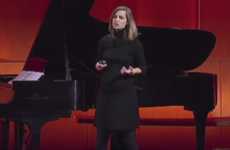
Need Inspiration?
Get inspired by 4,000+ keynote speaker videos & our founder, a top keynote speaker on innovation.
Stephen Deberry's Talk on Marginalized Communities is Enlightening
Kalin Ned — August 22, 2018 — Keynote Trends
Stephen DeBerry — an anthropologist who is concerned with cultivating a thriving society, delivers a TED talk on marginalized communities that illuminates a specific issue of urban distribution. Using Palo Alto, California as an example to get a point across, the speaker explains why families with lower income are typically segregated in the east part of cities — an area often referred to as the "wrong side of the tracks."
The 101 highway separates Palo Alto. While the west side is identified by DeBerry as the "haves" — as in having a good education system, access to water, sustainable income, the east is described as the 'have-nots.' During his talk on marginalized communities, the speaker calls attention to the reasons behind eastside disparity and ties it to the direction of the wind. Since the Earth rotates counterclockwise, the wind in both hemispheres blows in the same direction — to the east. This affects the distribution of classes in cities. Those with more power get the first pick and thus, "wind and pollution drive marginalized communities to the east."
Stephen DeBerry argues that disparity is caused by bad design through "sinister design decisions." The way to remove this obvious divide is through the implementation of and commitment to good design that essentially benefits everyone.
The 101 highway separates Palo Alto. While the west side is identified by DeBerry as the "haves" — as in having a good education system, access to water, sustainable income, the east is described as the 'have-nots.' During his talk on marginalized communities, the speaker calls attention to the reasons behind eastside disparity and ties it to the direction of the wind. Since the Earth rotates counterclockwise, the wind in both hemispheres blows in the same direction — to the east. This affects the distribution of classes in cities. Those with more power get the first pick and thus, "wind and pollution drive marginalized communities to the east."
Stephen DeBerry argues that disparity is caused by bad design through "sinister design decisions." The way to remove this obvious divide is through the implementation of and commitment to good design that essentially benefits everyone.
4.1
Score
Popularity
Activity
Freshness
















